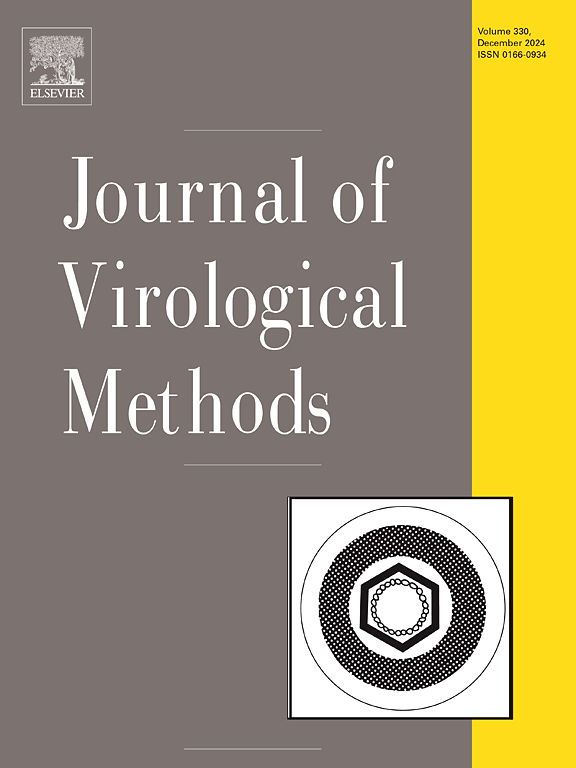两种IgG-scFv双特异性抗体中和SARS-CoV-2 Omicron变体的评价
IF 1.6
4区 医学
Q3 BIOCHEMICAL RESEARCH METHODS
引用次数: 0
摘要
双特异性抗体(bsAbs)是单克隆抗体(mAb)鸡尾酒的替代方案,可解决由于SARS-CoV-2突变体迅速出现而导致的疗效丧失问题。亲本抗体的结构和特异性影响高度中和性bsAb的发展。为了设计一种有效的bsAb,我们评估了44种针对SARS-CoV-2变体的单链片段变量(scFv)抗体的识别能力,并与最有效的中和单克隆抗体相比,评估了它们与受体结合结构域(RBD)的竞争性结合能力。从这个分析中,鉴定出三种抗体- 19n01, 01n21和01n27,它们具有广泛的识别和非竞争性结合行为。选择这些抗体作为亲本抗体设计两种bsAb。bsAb his L和his H被设计成IgG-scFv结构,每个结构域定向不同,以引入新的特异性。在活病毒试验中,两种bsab都保留了亲本抗体的中和能力,中和了Omicron变体BQ.1.1和XBB.1。本文章由计算机程序翻译,如有差异,请以英文原文为准。
Evaluation of two IgG-scFv bispecific antibodies for neutralizing Omicron variants of SARS-CoV-2
Bispecific antibodies (bsAbs) offer an alternative to monoclonal antibody (mAb) cocktails for addressing the loss of efficacy due to the rapid emergence of SARS-CoV-2 mutants. The structure and specificity of the parental antibodies influence the development of a highly neutralizing bsAb. To design an effective bsAb, the recognition of 44 single-chain fragment variable (scFv) antibodies against variants of SARS-CoV-2 was evaluated, along with an assessment of their ability to competitively bind to the receptor-binding domain (RBD) compared to the most potent neutralizing mAbs. From this analysis, three antibodies − 19n01, 01n21, and 01n27 − were identified for their broad recognition and non-competitive binding behavior. These antibodies were selected as the parental antibodies for the design of two bsAb. The bsAb bis L and bis H were engineered as IgG-scFv constructs, each with the secondary domain oriented differently to introduce new specificities. Both bsAbs retained the neutralizing capabilities of their parental antibodies in live-virus assays, neutralizing the Omicron variants BQ.1.1 and XBB.1.
求助全文
通过发布文献求助,成功后即可免费获取论文全文。
去求助
来源期刊
CiteScore
5.80
自引率
0.00%
发文量
209
审稿时长
41 days
期刊介绍:
The Journal of Virological Methods focuses on original, high quality research papers that describe novel and comprehensively tested methods which enhance human, animal, plant, bacterial or environmental virology and prions research and discovery.
The methods may include, but not limited to, the study of:
Viral components and morphology-
Virus isolation, propagation and development of viral vectors-
Viral pathogenesis, oncogenesis, vaccines and antivirals-
Virus replication, host-pathogen interactions and responses-
Virus transmission, prevention, control and treatment-
Viral metagenomics and virome-
Virus ecology, adaption and evolution-
Applied virology such as nanotechnology-
Viral diagnosis with novelty and comprehensive evaluation.
We seek articles, systematic reviews, meta-analyses and laboratory protocols that include comprehensive technical details with statistical confirmations that provide validations against current best practice, international standards or quality assurance programs and which advance knowledge in virology leading to improved medical, veterinary or agricultural practices and management.

 求助内容:
求助内容: 应助结果提醒方式:
应助结果提醒方式:


